EDITED & TRANSLATED by SUSANNA SHARPE
THE 2020 LOZANO LONG CONFERENCE, “Black Women’s Intellectual Contributions to the Americas: Perspectives from the Global South,” held February 20–21, 2020, was a groundbreaking gathering of Black women scholars, activists, intellectuals, and artists from a wide swath of the Americas and the Caribbean. In response to the exclusion of Black women from contemporary debates in Latin American and Black studies, the conference placed Afro-descendant women’s words, ideas, and work center stage during two days of keynotes, panels, and conversations hosted by LLILAS Benson.
Faculty organizers Lorraine Leu (LLILAS / Spanish and Portuguese) and Christen A. Smith (Anthropology / African and African Diaspora Studies) recorded interviews with Afro-Brazilian keynote speakers Rosana Paulino and Sueli Carneiro. Portal magazine is pleased to publish excerpts of these interviews, in translation from the original Portuguese.
Rosana Paulino: Stitching Memory
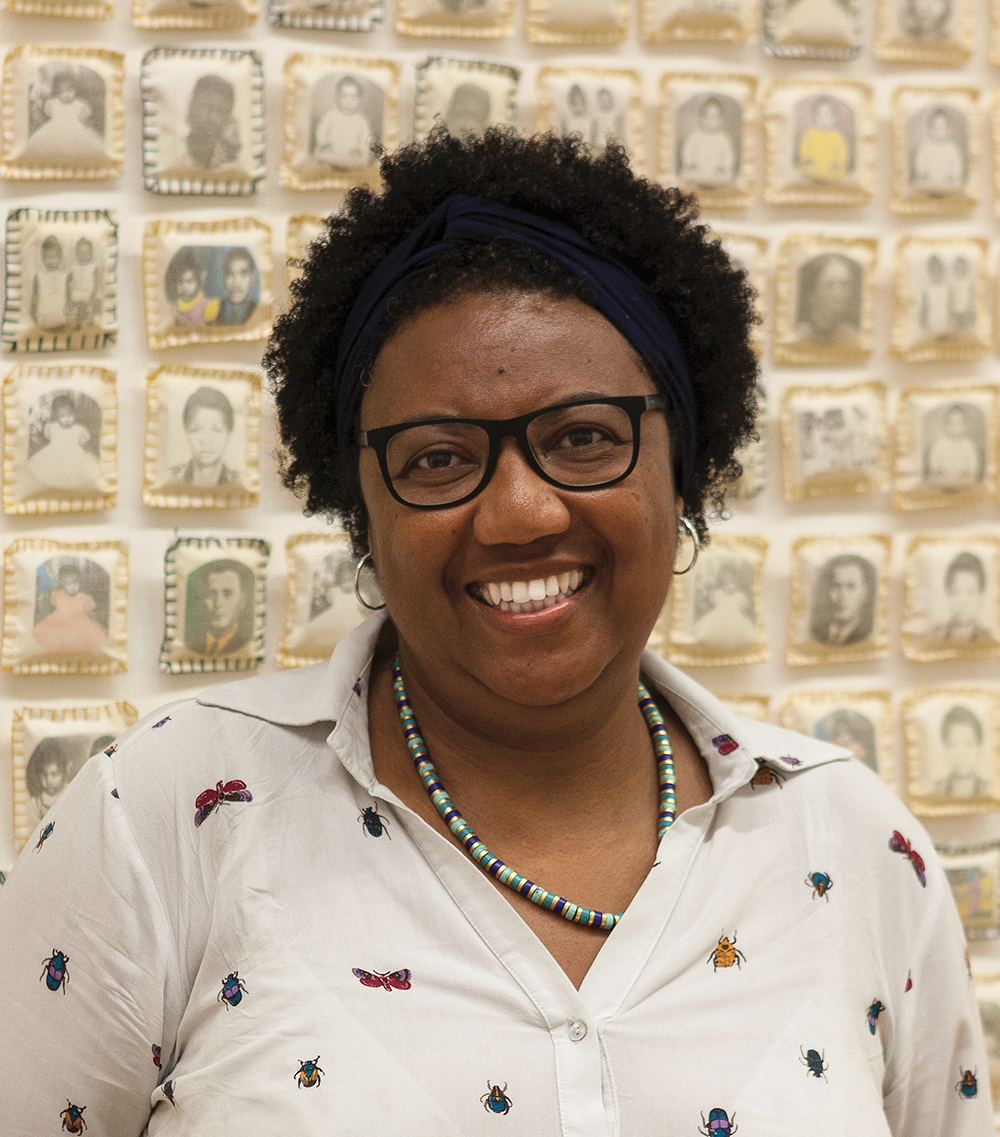
Rosana Paulino is a visual artist, researcher, and educator. She holds a doctorate in visual arts from the University of São Paulo. Through her compelling visual artwork in various media, she explores themes related to Black womanhood, family, identity, and the violent legacy of enslavement. “My work will always be influenced by what it is to be female and what it is to be a Black female,” said Paulino in an artist’s talk co-hosted by the Department of Art and Art History’s Center for Latin American Visual Studies and Visual Arts Center.
Paulino’s art was the subject of a 25-year retrospective at the Pinacoteca de São Paulo museum in 2018–19, titled Rosana Paulino: A Costura da Memória (The Sewing of Memory). Sewing and thread feature prominently in Paulino’s art, evoking memories of her mother, for whom sewing and embroidery were both a tradition and a way to earn money. In contrast to the delicate act of sewing, Paulino also spoke in her artist’s talk about the more violent act of suturing, which she uses in her work to represent the trauma of slavery and how Black Brazilians have had to remake themselves in order to survive.
LORRAINE LEU: I am wondering if you could comment on the experience of being a Black woman in contemporary Brazil.
ROSANA PAULINO: Economic indicators reveal that Black women occupy the bottom of the bottom of the social pyramid in Brazil. Even when we have a high level of education, we continue to be seen as being without aptitude, not capable. And those of mixed race are seen as that woman who is all body, good in bed, hot. When we talk about the Black female psyche, what are the models we turn to? If you delve into psychology, the myths and archetypes are all European. You have Venus, Athena, Demeter. Where does the Black woman fit in? Physically and psychologically we have no mooring. This is the discussion among Black women, Black feminists, because we have no real role models of success, of Black women who reach higher rungs in society; nor do we have physical role models, or the possibility of thinking about the Black psyche. We are adrift.
LEU: Brazil is the largest Black diaspora in the world, but what is its role in the diasporic conversation? Because in Brazil there is not merely the legacy of slavery, there is the living presence of slavery. For a long time, you were the only voice researching and talking about that presence in everyday society. I think that Brazil often stays apart from that more diasporic conversation.
PAULINO: Yes. Brazil stays apart from the conversation. It is absurd. But with new and younger artists on the scene, Brazil is finally positioning itself in the area of visual arts, and it is an important voice, being the largest Black population outside of Africa, and because the quality of this new artistic production is turning heads outside the country—of critics and curators—because it is powerful work. [Prior to this], the visual arts have been dominated by the upper middle class, the elite. Elites who have always made a point of not seeing themselves as Brazilian, not seeing themselves as descending from Black people, even when they are.
LEU: There is no questioning of the basis of societal relations in Brazil, not just in art, but anywhere else.
PAULINO: No, there is not. I think the great role that Black artists have played, not just in the visual arts but in dance, theater, and literature, is to revise that history, to challenge and question that history. There was a white, European hegemonic narrative that made use of the narrative of racial democracy to justify the exclusion of many. That was always the main narrative in Brazil. About 10 or 15 years ago, this really began to be challenged, pushed back on, by Black people in the most diverse cultural areas.
LEU: It is such a strong narrative, because it has kept Black people and Afro-descendants “in their place.” What will be the impact of this challenge, this frontal attack on that narrative?
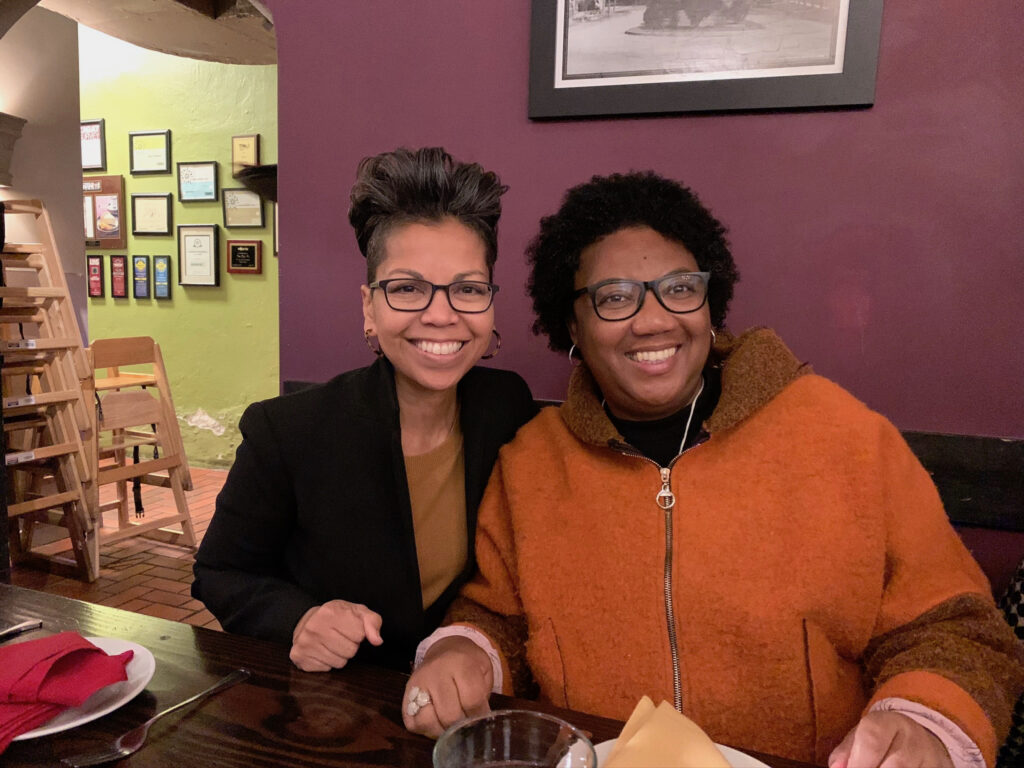
PAULINO: I think it will lead to the Black population as protagonist. Of Black people seeking things they’ve never had. Of Black people demanding a place at universities, demanding an end to police violence; of the LGBTQI population demanding their rights. In that sense, it is a boiling point. I believe that in the medium to long term—I don’t believe that change occurs quickly—those on the periphery of the big cities can see this movement growing among young Black people, among Black women. I have no doubt. The problem is what we will have to endure in the process.
LEU: What is the role of your art in undoing the dehumanization of Afro-descendants in Brazil? Because that dehumanization is the basis of police violence and genocide.
PAULINO: I don’t like to see my work as militant. My work comes from inside me, due to the uncomfortableness I feel in this society. And in that sense, sure, that discomfort is going to spread, because other people are also in this situation. I think my work can be a lit fuse, a catalyst, so that people start talking about things previously not discussed. I don’t like the idea of militant art, like social realism or the so-called “heroic” works of Nazism, so I will always think of that when I think of art in the service of politics, which mine is not. More than intellectual, it is personal. The discomfort is so big, the lump in my throat so big, that I have to speak. And obviously, I will express myself through the visual. That is my language.
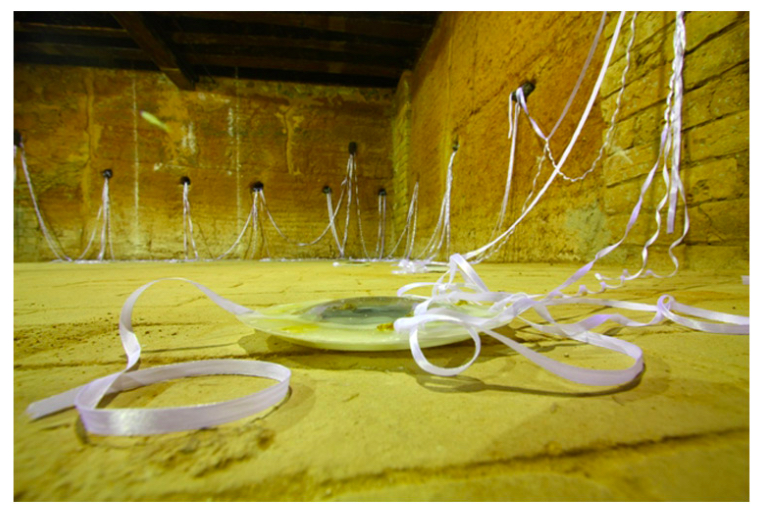
Paper clay, paraffin, satin ribbon, digital image, and flowers. Various dimensions. Reproduced by permission.
Sueli Carneiro: The Blackening of Feminism
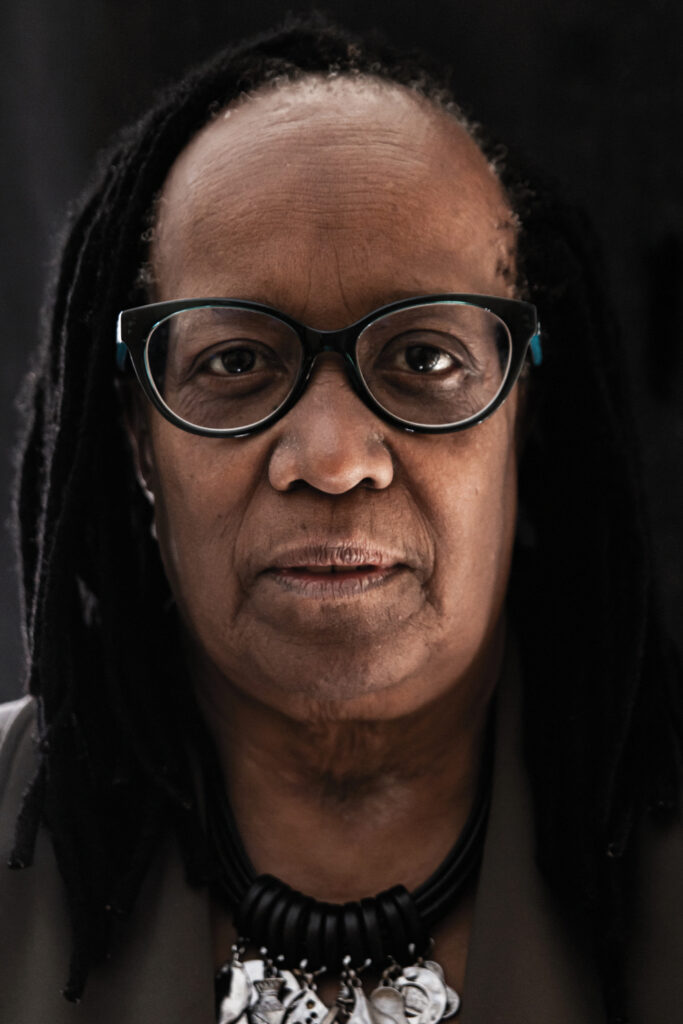
Sueli Carneiro is an Afro-Brazilian philosopher, anti-racism activist, and preeminent author on Black feminism in Brazil. She holds a degree in philosophy from the University of São Paulo and a doctorate in education from the same institution. Active in the Black feminist movement since the late 1970s, in 1988 she founded Geledés Black Women’s Institute, a leading organization in the fight against racism and gender discrimination in Brazil. Through Geledés, Carneiro established the only health program for Afro-Brazilian women, providing a range of services, as well as lectures on physical and mental health. She is also founder of SOS Racismo, a program that offers free legal assistance for victims of racial discrimination in São Paulo.
She is author, most recently, of Escritos de uma vida (2019). Her essays are collected in Racismo, sexismo e desigualdade no Brasil: Consciência em debate (2011). She spoke to Professor Christen A. Smith in February 2020 for the Cite Black Women podcast.
CHRISTEN SMITH: I first learned about Black feminism in Brazil from one of your texts, “Mulheres em movimento” (Women in Movement, 2003), which has been read around the world. And when I discovered the idea of “blackening feminism” [enegrecer o feminismo] I said to myself, “That’s it! That’s what I needed in my life!”
SUELI CARNEIRO: All of my activism is born from a revolt against classical feminism in Brazil, which was led and conceived by white women. There was a vigorous feminist scene in Brazilian society, one of the most prestigious such movements in international feminism. Brazil put forth great feminists, great theoretical leaders and activists who were recognized on the world scene. However, this feminism was not capable of understanding the specific problematic of Black women. This classic white, western feminism constantly affirmed that we are all women, and that therefore issues raised by Black women merely created division within a struggle that should be collective, a struggle whose principal target and enemy is patriarchy.
We saw that the only way for Black women to make their voices valued within feminism was to build their own organizations. To build political instruments with which Black women could affirm their voice, and make that voice echo within the movement and in the public sphere. The only way for Black women to be respected was to create political organizations with strength, competency, authority—with the courage to confront the traditional feminist movement. To prove what? To prove that in order for Brazilian feminism to effectively represent Brazilian women, it has to incorporate Black women’s issues. And Black women’s issues thus blackened the feminist flag. The variable of race had produced effects that were unknowable in traditional feminism.
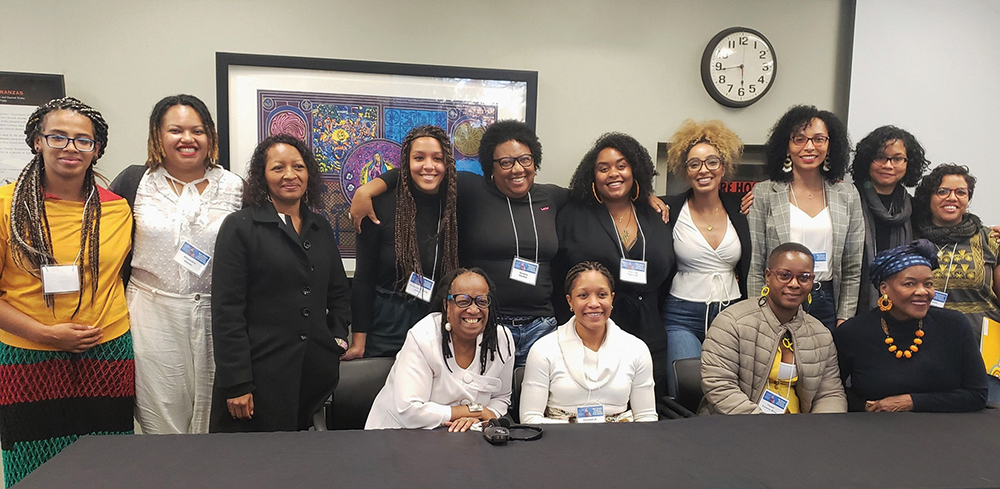
To blacken feminism meant saying to feminists: While you say that women must fight for equal pay, we Black women continue to be limited to manual labor. All of the changes that took place in the labor market benefited white women. Why? Because racism knocks down Black women, impeding their equal participation in the collective success of all women. When you speak of violence, you speak of the domestic violence that we all confront, or of harassment. But there is a symbolic violence that Black women suffer all the time: the aesthetic devaluing produced by racism. When you speak of reproductive rights, we are the women who are offered sterilization by candidates. In the healthcare system, we are the women whose uteruses are not preserved, because hysterectomy is the first option offered to us when we are diagnosed with adenomyosis.
So blackening feminism meant pointing to the racial piece in each dimension of women’s struggle, and what it has provoked in terms of disadvantages and inequality for Black women, the need to recognize this, and the need for public-policy remedies that counteract the disadvantages that have accumulated historically and that are reproduced all the time in the present.
SMITH: I see various things in common with Black feminism here in the U.S., and this shows how the condition of being a Black woman is diasporic. It is a transnational experience that echoes across space and time. How did you become a feminist?
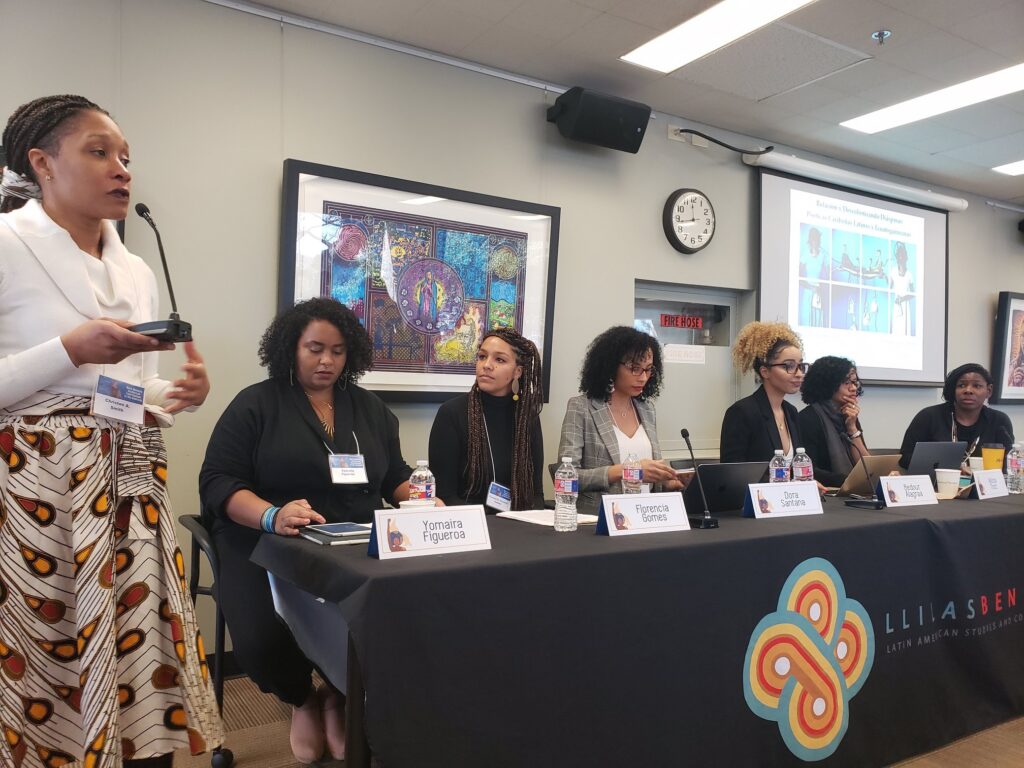
CARNEIRO: I have experienced domestic violence. And it affected me profoundly. The experience of being a girl, and with the expectations of that being different than if I were a boy—this also affected me profoundly. So before becoming a feminist, I discovered discrimination against women. And I discovered domestic violence. Feminism would show me that this is not a private matter. These are things that make it possible for men to oppress or harm women. Patriarchy is a powerful ideology, but I only realized this later. It must not be normalized. To fight against the normalization of patriarchy—this is the objective of political action in social movements.
SMITH: I think many women come to feminism because of the hurts they experience, because of pain.
CARNEIRO: It is incredible how healing it is to discover that this same bad experience, as it related to being a woman, also exists in relation to race. Because in Brazil, school is our initiation to the crucifixion that is racism. Our first terrible experiences are when we start school. I began school at six. I was always dark-skinned, and the darker you are, the worse things are. So I was always the object of racial discrimination, and I also experienced domestic violence. When I found the Black movement, and the feminist movement, these two things helped me rise above my individual experience from a social, political, collective perspective, to realize the meaning of these things I had lived through, in terms of ideologies of oppression, of submission—against which it is possible to fight.
SMITH: It is always possible to fight, right? I will always remember a word you used, which is “healing” [cura]. You said something very important during your keynote. That the written word is your way of thinking.
CARNEIRO: And speaking.
SMITH: But I also think that the written word is your way of healing.
CARNEIRO: [Laughs] Wow. How beautiful! My new thesis is this: We have already blackened feminism. In Brazil, it is no longer possible to have a feminism that ignores Black women. But we now face a new challenge: to formulate how that feminism is liberating and emancipatory for all women. In Brazil. Perhaps the world. This new synthesis is the new feminism: anti-racist, anti-sexist, of the people.
SMITH: What is the next step that you are imagining?
CARNEIRO: Black women must show that our feminism is emancipatory for everyone. We are the most fragile link, the most vulnerable, the most oppressed. Radical change needs to take place in order for us to escape this condition. From this place of oppression, we see the oppressors. We know all the dimensions of oppression. If this does not change radically, others will also be oppressed. I think we must build a utopia, and fight for the future with that utopia. We have to ask, “What is Black women’s Wakanda?” Why can’t we dare to imagine a utopia of liberation for all human beings? If it doesn’t come from us, from whom will it come?
Associate Professor Lorraine Leu is the author of Defiant Geographies: Race and Urban Space in 1920s Rio de Janeiro (Pittsburgh 2020), which examines the destruction of a poor, racialized community in the center of Rio de Janeiro to make way for Brazil’s first international mega-event. She is also the author of Brazilian Popular Music: Caetano Veloso and the Regeneration of Tradition; is co-editor of the anthology Latin American Cultural Studies: A Reader; and has been an editor of the Journal of Latin American Cultural Studies since 2000. Her next book project examines Black visual culture in Brazil, including photography, film, museum curatorship, and multi-media art.
Associate Professor Christen A. Smith is a Black feminist anthropologist, social justice advocate, and founder of Cite Black Women. She is author of Afro-Paradise: Blackness, Violence and Performance in Brazil (Illinois, 2016), which chronicles Black Brazilians’ experiences with police violence in Salvador, Bahia, and the dialectic between this violence and the state’s construction of Bahia as an exotic space (afro-paradise). Her research has been featured on Democracy Now!, PBS Newshour, and in the New York Times and the Feminist Wire. Her next project looks at the theories and intellectual life of Black Brazilian intellectual Beatriz Nascimento and her contributions to the global Black Radical Tradition. Smith is director of the Center for Women’s and Gender Studies at UT Austin.
EXPLORE AND LEARN MORE
Learn about Rosana Paulino: rosanapaulino.com.br
Learn about Sueli Carneiro and Geledés: geledes.org.br
Listen to Lorraine Leu’s interview with Rosana Paulino: Link to audio
Listen to Christen Smith’s interview with Sueli Carneiro on the Cite Black Women podcast


